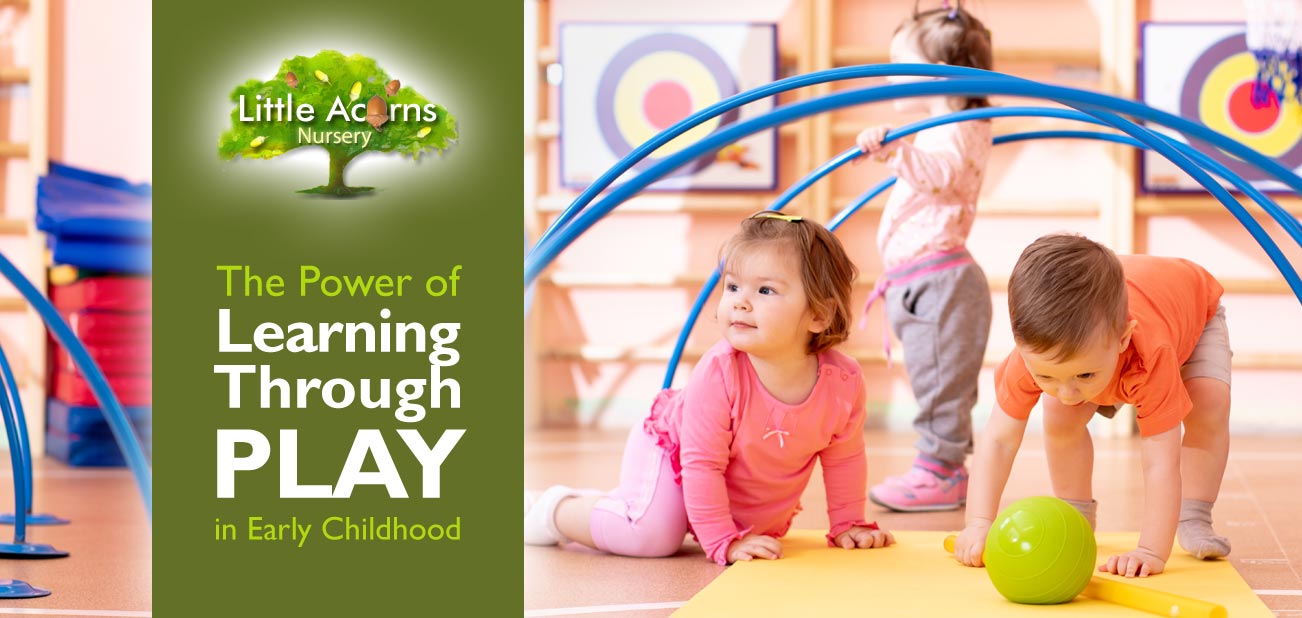Early childhood education is one of the most important foundations in a child’s life. The experiences, learning opportunities, and guidance children receive in their early years profoundly impact their development, shaping how they think, solve problems, and interact with the world. Understanding and supporting early childhood education goes beyond formal schooling; it involves fostering curiosity, encouraging creativity, and using play as a powerful tool for learning.
Table of Contents
As a parent, creating a nurturing and educational environment at home is essential. By understanding how children learn best through play, using effective parenting tips, exploring homeschooling ideas, and incorporating educational toys, parents can help their children build strong cognitive and emotional skills that will benefit them throughout their lives. Let’s explore each of these components and their role in supporting early childhood development.
Early Childhood Education: The Foundation for Success
Early childhood education typically refers to the period from birth to age eight, during which children experience rapid cognitive, social, and emotional growth. The goal of early childhood education is to support the development of essential skills that will serve as the foundation for later learning and success. High-quality early education can help children become confident learners, effective communicators, and well-rounded individuals.
The Importance of Early Childhood Education
Research shows that early childhood education can have a significant, positive impact on children’s academic and social outcomes. In a child’s early years, the brain forms connections at an astonishing rate, making it a critical period for learning. Through structured activities and guided exploration, children develop fundamental skills in literacy, numeracy, language, and problem-solving. Early education also promotes emotional intelligence, helping children understand and manage their feelings, empathize with others, and build strong social relationships.
Essential Elements of Successful Early Childhood Education
An effective early childhood education program focuses on holistic development. Here are some of the main components that parents and educators should consider:
- Language Development: Encourage children to expand their vocabulary, engage in conversations, and develop literacy skills.
- Social and Emotional Skills: Support children in learning how to interact with others, manage their emotions, and resolve conflicts.
- Physical Development: Promote motor skills through activities like drawing, running, and building blocks.
- Creative Expression: Give children opportunities for imaginative play, art, music, and dance.
By understanding and incorporating these elements, parents can provide a balanced educational experience that nurtures their child’s full potential.
Learning Through Play: Unlocking the Educational Benefits of Fun
Learning through play is a concept that highlights the value of play in children’s cognitive, social, and emotional development. Play is more than just a way for children to pass the time; it’s an essential part of how they explore the world, process information, and develop critical thinking skills.
The Benefits of Learning Through Play
When children play, they engage in activities that naturally stimulate their curiosity and encourage experimentation. Play allows them to explore new ideas, practice social skills, and learn how to solve problems. It also fosters resilience as children learn to navigate obstacles and find creative solutions to challenges.

Through play, children can explore different aspects of their environment and gain a deeper understanding of the world around them. Here’s how play can contribute to various developmental areas:
- Cognitive Development: Building with blocks, solving puzzles, and engaging in imaginative play all support logical thinking, spatial awareness, and decision-making skills.
- Social Skills: Playing with others teaches children how to share, cooperate, negotiate, and communicate.
- Language and Literacy: Role-playing activities, storytelling, and games that involve verbal interactions encourage vocabulary expansion and language skills.
- Emotional Development: Through pretend play, children learn to express their emotions, develop empathy, and understand different perspectives.
Types of Play-Based Learning Activities
There are countless play-based learning activities that parents can incorporate into their child’s daily routine. Here are a few ideas:
- Role-Playing Games: Set up a pretend grocery store, doctor’s office, or restaurant to encourage imaginative play and social skills.
- Building Blocks and Puzzles: These activities enhance problem-solving abilities, fine motor skills, and cognitive development.
- Art and Craft Activities: Painting, coloring, and crafting allow children to express themselves creatively and develop hand-eye coordination.
- Outdoor Play: Nature walks, scavenger hunts, and gardening encourage exploration, physical activity, and a connection to the environment.
Parenting Tips for Education: Supporting Your Child’s Growth
Parenting is a lifelong journey of learning, especially when it comes to supporting your child’s educational journey. By adopting a proactive approach and creating an environment that encourages curiosity and growth, parents can help their children develop a love for learning. Here are some valuable parenting tips to help your child succeed in their educational endeavors:
1. Create a Learning-Friendly Environment
The environment in which children learn can significantly impact their motivation and ability to focus. Designate a quiet, comfortable space where they can read, complete activities, and explore educational toys. Having easy access to books, art supplies, and learning materials can encourage independent exploration and creativity.
2. Encourage Curiosity and Ask Questions
Encouraging curiosity is essential for a child’s intellectual growth. When children ask questions, try to engage in conversations that help them explore their interests and expand their understanding. Responding positively to their curiosity helps foster a love of learning.
3. Read Together
Reading is one of the most effective ways to support a child’s language development. Make reading a daily habit by exploring picture books, storybooks, and even non-fiction topics that capture their interest. Reading together not only improves literacy skills but also creates valuable bonding time.
4. Set a Routine
A consistent daily routine that includes time for play, learning, and relaxation can help children feel more secure and focused. A regular schedule allows children to understand what to expect, making transitions between activities smoother and reducing stress.
5. Encourage Problem-Solving and Independence
Allowing children to attempt tasks on their own, even if they make mistakes, fosters independence and resilience. Encourage problem-solving by giving them opportunities to figure out solutions on their own before offering help. This approach builds confidence and a sense of accomplishment.
Homeschooling Ideas: Tailoring Education to Your Child’s Needs
For families who choose homeschooling, creating an engaging, flexible, and personalized learning environment is key. Homeschooling allows parents to design a curriculum that suits their child’s unique learning style, pace, and interests. Here are some homeschooling ideas to make the experience enriching and enjoyable:
Hands-On Learning Activities
Hands-on activities allow children to experience concepts in a tangible way. For example, use household items to teach math concepts (like counting with beans or measuring ingredients) or science experiments (like baking soda and vinegar reactions) to introduce chemical reactions.

Use Educational Resources and Online Tools
There are many online resources and tools designed to enhance homeschooling. Platforms like Khan Academy, ABCmouse, and Duolingo offer interactive lessons in subjects such as math, language arts, and foreign languages. These resources are helpful for reinforcing concepts and providing a structured learning experience.
Incorporate Field Trips and Nature Exploration
One of the benefits of homeschooling is the flexibility to take learning outside the home. Regular field trips to museums, science centers, parks, and historical sites provide real-world context and bring learning to life. Nature exploration, such as hiking and observing wildlife, offers hands-on science lessons and teaches children about ecosystems and conservation.
Develop a Learning Plan Based on Your Child’s Interests
Homeschooling allows for a personalized approach to education. Create a learning plan that aligns with your child’s interests, such as incorporating art projects, music lessons, or coding tutorials if they show an inclination for these subjects. This individualized approach keeps learning engaging and relevant.
Educational Toys: Tools for Fun and Learning
Educational toys play a crucial role in early childhood education by combining fun with learning. These toys are designed to help children develop a wide range of skills, from cognitive and motor skills to language and problem-solving abilities. Incorporating educational toys into daily routines provides children with opportunities for independent learning and exploration.
The Benefits of Educational Toys
Educational toys offer multiple benefits for young learners. They promote curiosity, creativity, and critical thinking skills. Many educational toys are designed to target specific developmental areas, allowing children to practice important skills while playing. For example, building blocks encourage spatial awareness and fine motor skills, while memory games enhance cognitive abilities.
Types of Educational Toys
Here are some popular types of educational toys and how they contribute to early childhood development:
- Building Blocks and Construction Sets: Building blocks teach children about balance, shapes, and problem-solving as they construct structures.
- Puzzles and Brain Games: Puzzles help develop logical thinking, patience, and spatial reasoning. Games that require matching, sorting, or sequencing enhance cognitive development.
- STEM Toys: Science, technology, engineering, and math (STEM) toys encourage critical thinking, experimentation, and curiosity. Robotics kits, science lab kits, and coding games are examples of STEM toys that provide hands-on learning experiences.
- Musical Instruments: Introducing children to musical instruments like drums, keyboards, and xylophones supports sensory development, rhythm, and auditory skills.
Conclusion: Nurturing a Lifelong Love of Learning
Supporting a child’s early education is one of the most important things parents can do to foster lifelong learning. By embracing learning through play, following valuable parenting tips, exploring homeschooling ideas, and incorporating educational toys, families can create a nurturing environment that encourages children to explore, ask questions, and develop a strong foundation of skills.
In the early years, children are full of curiosity and wonder, and it’s up to parents and caregivers to
guide them through this exciting phase of growth. Encouraging children to learn through experiences, exploration, and play helps them develop cognitive, emotional, and social skills that will serve them well throughout their lives. With the right tools, strategies, and support, families can help children build a strong foundation that fosters confidence, resilience, and a lifelong love of learning.


